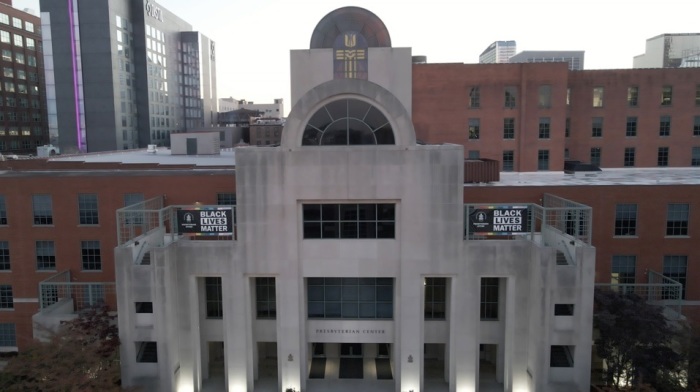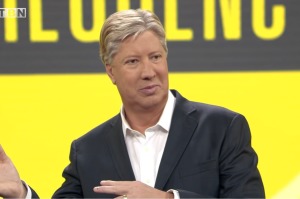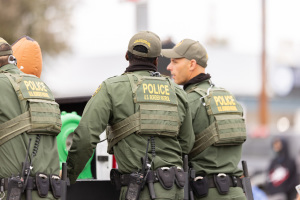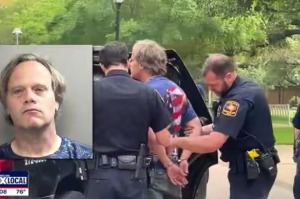PCUSA moves closer to requiring clergy candidates to answer questions about LGBT views

The Presbyterian Church (USA) is one step closer to requiring clergy candidates to be asked about their views on sexual orientation and gender identity, in a measure some believe will target theological conservatives.
Known as the “Olympia Overture” after the presbytery from which it came, the proposal was divided into two parts, both of which were passed by commissioners at the 226th General Assembly on Wednesday.
Also known as POL-01, the overture will next go to the presbyteries for ratification, with the two parts of the measure being presented separately to the regional bodies for consideration.
The first part, which called for sexual orientation and gender identity to be added to the PCUSA Book of Order’s antidiscrimination policy, was approved by a vote of 389-24.
The second part, which required that candidates for ordination be asked about their views on discrimination on the basis of sexual orientation and gender identity, passed by a vote of 297-130.
During discussion on part two, Ruling Elder Dustin Wilsor of the Seattle Presbytery offered an amendment adding the phrase “the Historic Principles of Church Order (F-3.01)” to the list of required topics of questioning for candidates, in order to reaffirm a commitment to “freedom of conscience.” The amendment passed by a vote of 216 to 192.
In contrast to the first part of the overture, the proposal on what clergy candidates could be asked pertaining to LGBT inclusion garnered considerable debate, with many speaking for or against it.
Young Adult Advisory Delegate Chase White of the Utah Presbytery was among the critics, saying that while he supported the first part of the overture, the second part undermined the “big tent” of the PCUSA.
White denounced the idea of there being “gatekeepers” to the church, citing the past policies of the PCUSA when it used to prohibit the ordination of openly gay individuals.
“I believe that this section of the overture threatens our witness to Christ, because it allows us once again to be gatekeepers, but now just to a different group of people that we have decided belong on the outside,” White said. “Everyone belongs inside, even those we disagree with.”
Teaching Elder Benjamin Fitzgerald-Fye of the Cayuga-Syracuse Presbytery defended the overture, saying that it was “not punitive” and “doesn’t ask anyone to do anything.”
“It doesn’t stop anyone from doing anything,” Fitzgerald-Fye added. “We cannot have a conversation if we keep giving ourselves permission not to talk about things.”
“It is not nice to set aside the rights of others because it is uncomfortable to talk about it. It is not nice to exclude people knowingly, and then not have to talk about it. What this does is to ask us to begin having a conversation, so people know where we stand as leaders.”
The overture’s official rationale explained that the proposal came due to people being ordained in the Washington state-based Olympia Presbytery who had “opinions that did not fully embrace the equal and affirmed status of LGBTQIA+ persons in the church.”
“Those conversations were difficult because the Book of Order does not include gender identity or sexual orientation in its list of protected classes,” stated the official rationale.
“These experiences reveal the need for denominational clarity concerning the church’s ministry to LGBTQIA+ individuals as full participants in all aspects of life in the church.”
The official rationale also said that although it supported “the freedom of councils of the church to make ordination decisions as guided by the Holy Spirit,” the denomination still “continues to find and confirm that the limits of each council of the church in their ‘local option’ are conditioned by affirmations found in the Book of Order: sex, race, or any other prejudicial category.”
In advance of General Assembly, around 150 clergy signed an open letter against the proposal, arguing that “key portions of this overture threaten to undermine” the theological diversity of PCUSA.
“Specifically, the overture’s proposed changes to G-2.0104b appear to introduce an ordination question that is deeply at odds with our core Reformed tenet of freedom of conscience,” declared the open letter.
“This amendment would immediately disqualify and exclude many faithful and dedicated Ruling Elders, Teaching Elders, and Deacons from serving due to their convictions. Moreover, it risks imposing a non-negotiable and rigid standard on an issue where faithful Christians hold differing views.”





























